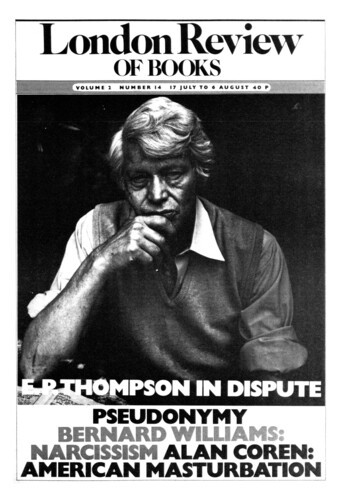What nations are for
Tom Nairn, 8 September 1994
The politics of dispossession is nationalism – an over-generalisation which at once calls for precise qualification. It is quite true that not all nationalists are dispossessed: possessors have their own (often strident) variations on the theme. It is also true that nationality politics did not originate among the crushed and uprooted: indeed its primary source was the nouveaux riches or upwardly mobile of Early Modern times, in Holland, England and France.





